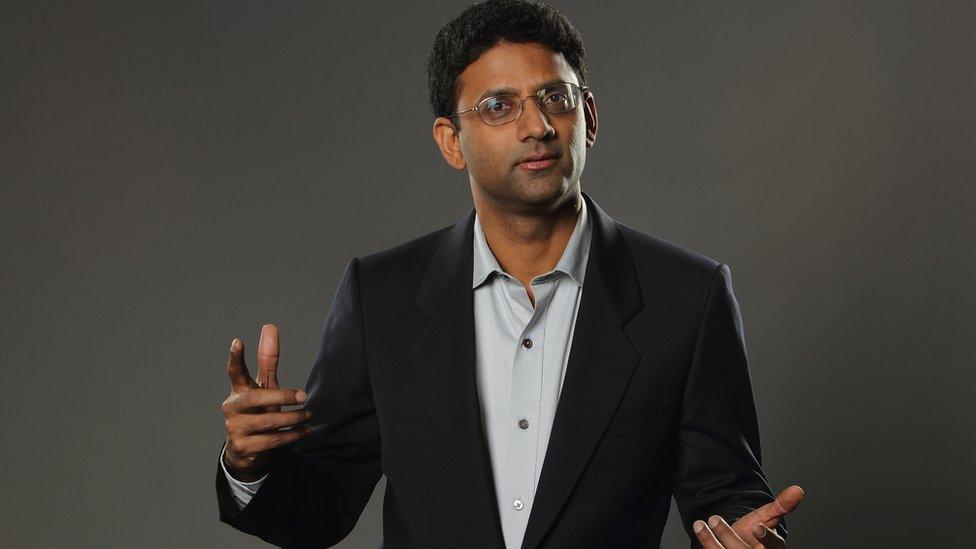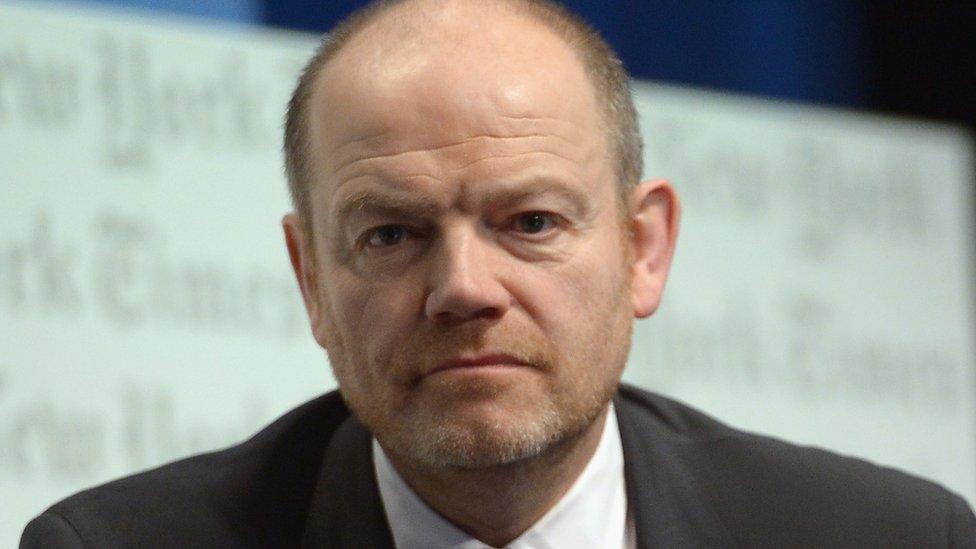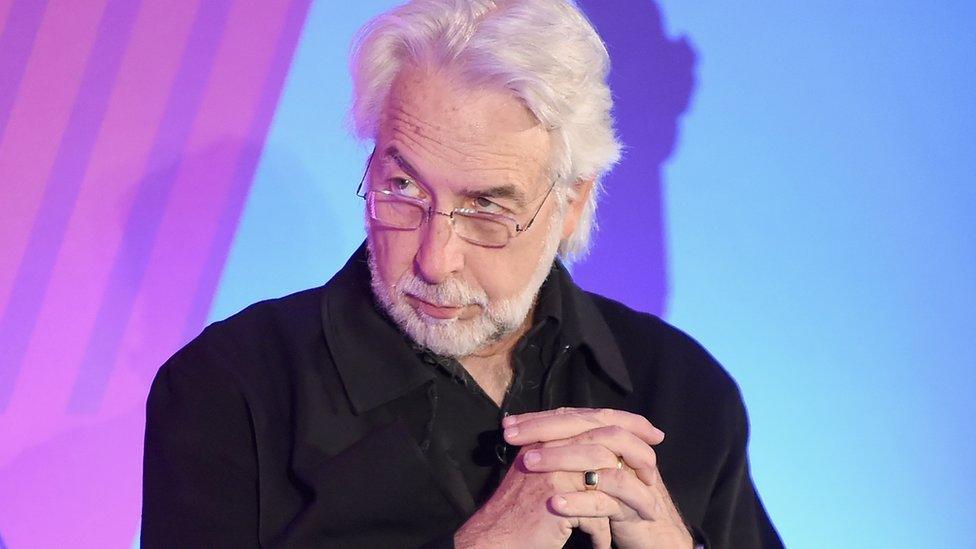Google to News: can we be friends?
- Published
One of the deepest frustrations at the top of Google is the regularity with which it is coupled with Facebook. I plead guilty. Talk of "the digital duopoly" pervades the news industry, which rightly argues that these two superstar firms are gobbling up a growing proportion of advertising revenue. But it masks huge differences between the companies.
Just as Facebook is principally a proprietary news feed, so Google is principally a tool for Search. But Google has a big and growing range of products. Central to the company's PR strategy is a desire to shift the focus back to those products. According to this line of thought, the more people think of Google as the way they send emails, navigate while driving, or share documents, the less they'll think about issues like tax, privacy, and extremist content on (Google-owned) YouTube.
Google Senior Vice President, Philipp Schindler, says quality journalism matters
Another key difference is the relationship with the news industry. Some executives at Google were taken aback when, earlier this year, Facebook announced changes to its news feed that would prioritise "meaningful interactions" from family and friends over content from publishers.
Facebook would argue this is a return to their routes, and a pro-social move. Publishers, many of whom built business models dependent on viral traffic, certainly felt the pinch quickly. One website, Little Things, went out of business, citing the changes to News Feed., external
Leaning in
For Google, this looked like an opportunity. Their launch in New York today was in the works before Facebook announced its changes. But its timing is cute. The message is, as Facebook seems to lean back from news, Google is leaning in. Long seen by many media as the enemy, Google is now saying, let's be friends.

Google's Head of Search, Ben Gomes, wants to prioritise quality news
I spoke at length last week to Richard Gingras, who runs Google News, and Ben Gomes, who runs Google Search. They are two of the most powerful men in media. It is clear that, in that phrase beloved of American journalists, they want to "reach out" to the news industry.
Their main vehicle is the Google News Initiative. It mainly consolidates existing efforts, and has three fronts, chosen partly for their alliterative effect. Google say they want to
elevate high-quality news (i.e. make it more prominent in Gomes's search function);
help to evolve new business models;
use new technology to empower news organisations. This mainly means developing mechanisms that give them better data on their audiences.
More important than any of that is the launch of Subscribe with Google. The company already supports subscriptions in a few ways, but this new tool to encourage frictionless payments could be significant for many publishers.

Mark Thompson, CEO of the New York Times Company, wants more money to come back to publishers.
I met up with Mark Thompson, the former BBC Director-General who now runs the New York Times, a few hours after he'd signed his company up for the service, and there's no doubt he sees it as a welcome first step. But the next thing he wants to talk to Google about is clawing back some of the advertising revenue that they, together with Facebook, are gobbling up.
That dominance in advertising means that, despite this glitzy launch in New York, Google is likely to be seen as the enemy in many parts of the media for some time yet. The tech giant protests that it sent $12.6bn to partners in the news industry, and generates 10bn clicks for publishers each month. It has no legal obligation to do this of course, though some would argue that it does have a moral obligation.
The way the company sees it, it provides (principally through Search) an extraordinary tool for accessing the world's information - and does so for free. This won't necessarily last: someone else could come along and do it better. Perhaps a Chinese firm, for instance.
New terrain
But the news industry feels differently. While Google has no newsroom, the advertising they used to rely on to fund journalism now seems locked up in a few tech companies far away. That's the cause of antagonism. Still, the moves Google has made today are based on a couple of important principles that much of the news industry can get on board with.

Head of Google News, Richard Gingras, says quality news costs money
First, there is such a thing as high-quality journalism. This is obviously a composite idea: you can be a high-quality tabloid or a high-quality broadsheet, for instance. But in accepting that some journalism is more socially valuable than others, Google is moving into the terrain of editorial judgements. That's somewhere technology companies have traditionally considered hostile terrain.
Second, quality costs. I asked Gingras specifically if Google believes that information should be free. His instinctive answer was no. He said Google believes it should be accessible, but they accepted that investigative reporting, for instance, needed to be well funded.
A new deal is emerging within the news industry, in which growing evidence that audiences will pay for content - if it's unique, personalised, and good enough - mixes with the realisation that advertising revenue is disappearing.
Many publishers will remain openly hostile to Google. But Google has moved toward their position, not only in relation to the above two principles, but also in committing this $300m as part of the GNI.
The news industry will now either accept this offer of collaboration, or bite the hand that feeds them and say 'we don't want your morsels, after you've stolen our lunch'. Different institutions will adopt radically different approaches. Some may now change their mind. None can avoid making a choice, because while the other half of the digital duopoly goes into crisis mode, external, Google is making, and remaking, the news.